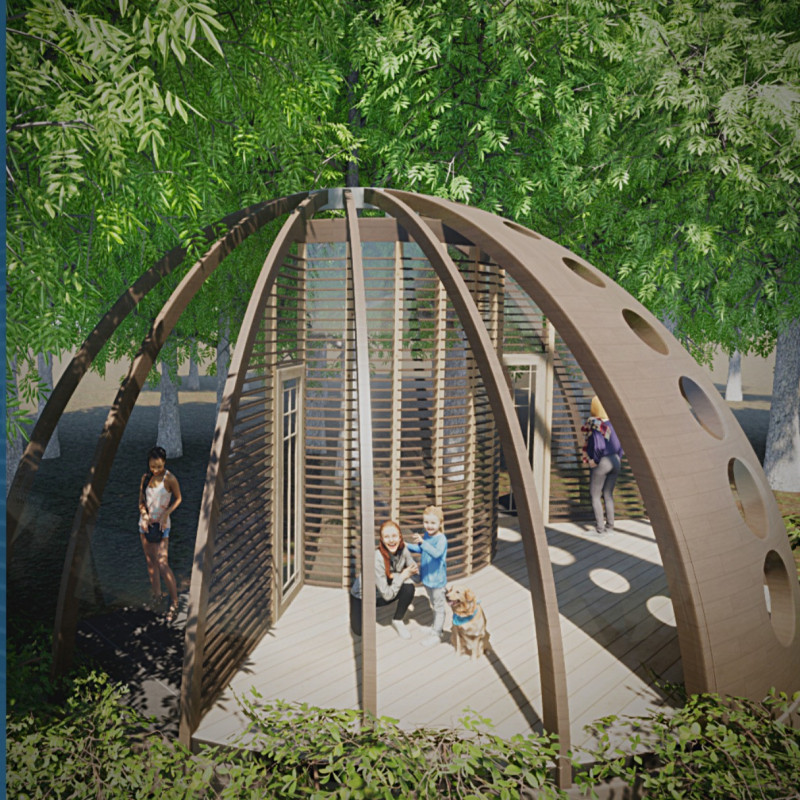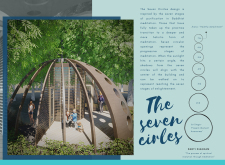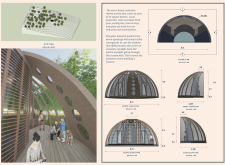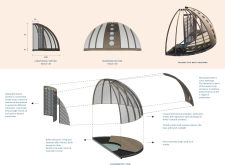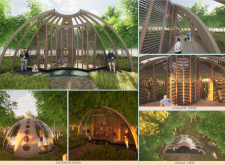5 key facts about this project
The Seven Circles architectural design project presents a thoughtful exploration of space, light, and spirituality. Designed as a meditative environment, this structure draws inspiration from the seven stages of purification in Buddhist meditation, reflecting an approach that emphasizes both functionality and symbolism. The building features seven circular openings that align visually and thematically with the meditation process, guiding users toward deeper introspection.
The project functions primarily as a meditation space, facilitating individual and communal practices. Apart from its primary use, the design integrates the exterior landscape with the interior, creating a seamless transition between the natural environment and the meditative experience. The overall form of the structure, characterized by a semi-dome shape, fosters a sense of unity while offering an engaging atmospheric quality that enhances the meditative practice.
The materials selected for this project play a crucial role in its overall design approach. Local timber, specifically species such as pine and eucalyptus, forms the skeletal structure, showcasing a commitment to sustainability. The application of glue-laminated timber in the curtain wall system provides both structural integrity and aesthetic appeal. Transparent glass comprises the circular openings, allowing natural light to flood the interior space and generate dynamic shadow patterns that symbolize the journey of enlightenment.
The adaptive louver system is another vital element, enabling users to adjust airflow and light conditions as needed. This functionality contributes to the overall comfort of the space, accommodating individual preferences in a way that traditional meditation spaces might not. Furthermore, the inclusion of a reflection pool not only enhances the aesthetic experience but also encourages a sense of tranquility and mindfulness, elements essential to meditation.
The Seven Circles project distinguishes itself through its integration of architectural design and philosophical principles. The dynamic interplay of light and shadow throughout the day offers users a unique experience on each visit. Moreover, the design emphasizes locality and sustainability, using materials sourced from within the region to reinforce a connection to the surrounding environment. This project showcases how architectural decisions can support both the physical and experiential aspects of meditation.
In summary, the Seven Circles architectural design project presents a well-rounded examination of space tailored for meditation, emphasizing materials, functionality, and philosophical meaning. For those seeking further insights into the architectural plans and sections that embody this project, a detailed exploration of the architectural designs and ideas would enhance the understanding of its unique attributes and conceptual framework.


